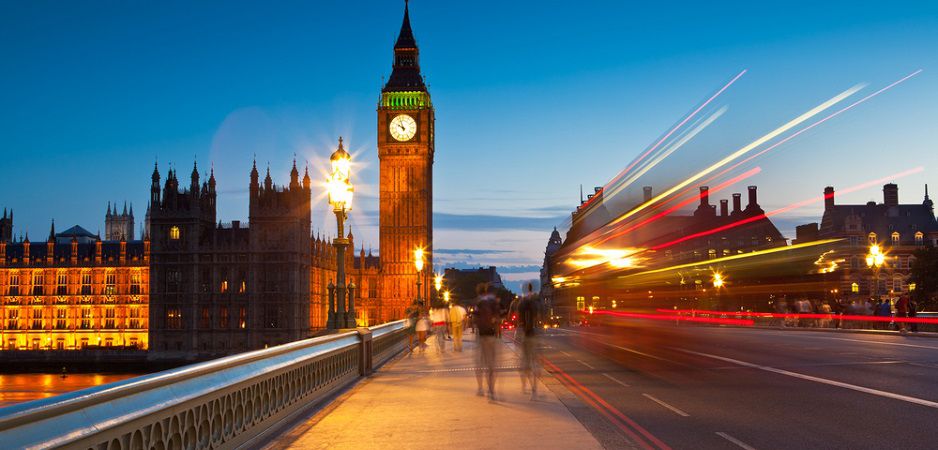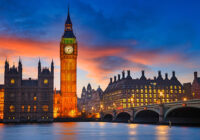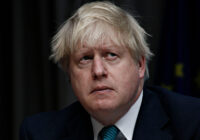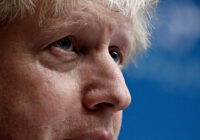Veteran Liberal Democrat leader Vince Cable might just hold the key to Britain’s Brexit woes.
My country is in a dreadful mess. Everybody knows it, although some of our politicians are still trying to pretend that they don’t.
Unless something dramatic happens, as the clock strikes midnight in Brussels at the close of March 29, 2019, we will leave the European Union. We know we will leave because we gave two years’ notice under Article 50 of the Treaty of Lisbon and it expires at that precise moment. Without a comprehensive agreement fully ratified by the EU, our country will jump off a cliff, although pushed might perhaps be a more accurate metaphor.
Over five months have gone by since we served the Article 50 notice and not one single thing has yet been resolved in our negotiations with the EU. There is no reason to think that the next five months will see any more progress, or indeed the next 10 months. By summer next year, it will be brutally apparent to even the most ostrich-like Members of Parliament (MPs) that we face a harsh choice. We will be able to opt for continued membership of the single market and the customs union outside the EU on terms dictated by the EU or we will have to endure the full horrors of the economic cliff-edge.
Now some hard-line Brexiteers in the House of Commons relish the idea of the cliff edge. They see it as a kind of cleansing ground zero for British society. After the jump we can build a new world of freedom and independence unchecked by the evil empire of the EU. Like Berlin after 1945, we will rise like a phoenix from the ashes.
But most MPs in the recently-elected House of Commons don’t share this view. Faced with a bi-polar choice imposed on us by the EU between continuing single market membership and the cliff edge, they will not want to jump. Whichever party they belong to and whatever their tribal loyalties, they will simply wish to protect their constituents from the catastrophic economic harm the jump will cause.
THE CENTRAL DILEMMA
So how can we escape the trap into which we have managed to get ourselves?
Alone, Theresa May can’t get us out of the trap. Whatever the prime minister’s private views on Brexit as an erstwhile supporter of staying in the EU she is now a captive of the hard-liners in her party. If she eventually performs another of her famous U-turns and opts for agreeing to the EU’s imposed terms for continuing single market membership, she will face a leadership challenge. In the ensuing contest, she will be replaced as prime minister by a hard-line Brexiteer because the majority of party members will vote for one in a run-off for the leadership of the Conservative Party. It’s back to square one. The Conservative Party will never be united on this issue.
Alone, the Labour Party can’t get us out of the trap either. Even if they eventually come out fully in favor of the single market option as they surely will, they don’t have enough MPs to command a majority in Parliament.
Somehow or other, pro-European Labour and Conservative MPs are eventually going to have to find a way to cooperate with each other in the national interest. Only by doing so can they defeat the hard-line Brexiteers. Moreover, since the EU will only negotiate with a government, they are going to have to take control of the executive branch in order to save Britain from catastrophe. Endlessly sniping from the legislature might be able to create paralysis by amending or blocking the domestic laws required to enact Brexit, but this strategy will not be sufficient to resolve the crisis.
The central difficulty in achieving this task is that Conservative MPs wishing to remain in the single market will never allow a left-wing Labour leader to enter Downing Street, and Labour MPs will never agree to support a Conservative politician as prime minister. But confronted with the enormity of the imminent economic disaster facing Britain and their own constituents, they might just agree to cooperate in a temporary government of national unity if they could identify a compromise prime minister acceptable to them all.
ENTER VINCE CABLE
Vince Cable, leader of the Liberal Democrats, could fulfil this role. His small centrist party in the House of Commons has just 12 MPs. Yet he is well-known by the general public and widely respected across the political spectrum. He also has a great deal of experience, ranging from chief economist at Shell to five years as business secretary in the last Conservative-led coalition government. At 74, his advanced age would generally be viewed as a drawback in politics, but here it becomes an advantage, since he has no long-term political career in front of him. He is a political heavyweight leading a small party and without a future — perfect for the job in hand.
Now the idea of Cable leading a government of national unity as prime minister sounds rather dramatic at first. It seems to break all the rules. Yet we would only be replacing the present arrangement between the Conservatives and the Northern Irish Democratic Unionist Party with a different governing coalition between the parliamentary Labour Party, the Liberal Democrats and a pro-single market group of Conservatives. An emergency coalition agreement would have to be negotiated between these three groups, each of which would be represented in the Cabinet. The coalition agreement would also need to be fully supported by the Scottish and Welsh Nationalist Parties, whose backing would be required for votes in the House of Commons.
These negotiations would no doubt be tricky, as they must cover all areas of government and not just Brexit. However, if we recall that the negotiations between the Conservatives and the Liberal Democrats in 2010 only required a few days and successfully resulted in a stable coalition government that lasted for a full parliamentary term of five years, the task would not appear impossible. There is nothing like political urgency and the high cost of failure to focus the minds of politicians.
There would have to be two deputy prime ministers in Britain — one from the Labour Party and the other from the rebel Conservative group. The two deputies would effectively be in joint charge of the government, since either could bring Cable’s administration crashing down in the House of Commons. Even if they didn’t actually force a vote of no confidence, no legislation would be able to pass the House of Commons without their mutual consent.
 Faced with such a formidable coalition in Parliament, the Conservative prime minister would be forced to resign. As the leader of the second largest party in Parliament, it would then be for the leader of the Labour Party to propose to the monarch that the leader of the Liberal Democrats be requested to try form a government of national unity.
Faced with such a formidable coalition in Parliament, the Conservative prime minister would be forced to resign. As the leader of the second largest party in Parliament, it would then be for the leader of the Labour Party to propose to the monarch that the leader of the Liberal Democrats be requested to try form a government of national unity.
After visiting Buckingham Palace, Cable would come out onto the steps of Downing Street flanked by the two deputy prime ministers and officially request the EU to negotiate a withdrawal treaty with the United Kingdom based on continuing membership of the single market and the customs union. The EU would swiftly accede to this request.
But that is not where it ends. All three politicians standing on the steps of Downing Street that day would understand that membership of the European Union with a seat on the European Council would be better for Britain than the second best option of membership of the single market and the customs union outside the EU with no say on the rules. Yet they may well feel constrained by the 2016 referendum result, in which a narrow majority voted to leave the EU. They would not wish to ignore the “will of the people.”
They could, therefore, decide to offer a second referendum in which the electorate could choose between leaving the EU on the basis of the withdrawal treaty negotiated by the government and remaining in the EU. In this referendum, unlike the earlier one, each of the two options on the ballot paper would be clearly defined. If the electorate again voted to leave, the withdrawal treaty would be swiftly ratified. But if in this second referendum the voters opted to remain, that would unambiguously trump the outcome of the first.
There is of course a tricky issue. Like an unexploded bomb with a timer, there is a ticking clock here. By the time the new government has been formed, there may well not be sufficient time to organize another referendum before we have already left the EU. So a delay in our scheduled departure date would be required. The legal position has not yet been tested, but it might be possible to suspend or withdraw Article 50 unilaterally. However, even if a delay required the unanimous consent of the other EU states, it would be hard to see such consent being denied in these political circumstances.
There will of course be an outpouring of rage from the hard-line Brexiteers at the choice presented on the ballot paper, no doubt powerfully echoed by elements of the tabloid press. Yet the first referendum never defined what a Leave vote meant other than we would leave the EU. The vote did not say we must curtail European immigration, quit the customs union, leave the single market or walk away from the European Court of Justice any more than it said that we must stop using metric units and revert to imperial units. In the event of Leave winning, it was inevitably going to be the government of the day that would have to interpret the result, and that is exactly what will have happened here. There will have been no democratic deficit.
AFTER THE STORM
Having resolved the immediate crisis over Europe and avoided the economic cliff edge, the government might immediately step down. Yet it would be hard to see the Conservative rebels being welcomed back with open arms by the Brexiteer wing of the Conservative Party under these circumstances. So a more likely scenario would be that the national government would continue in office for some time, perhaps even until the next scheduled general election due in 2022. The Labour Party would have a great deal more power than it currently enjoys in opposition. The Liberal Democrats, the rebel Conservatives and the nationalist parties could between them prevent Labour from doing anything of which they seriously disapproved. Nobody would get it all their own way, but there would be something in it for everyone.
Sooner or later, however, another general election will arrive. The various political groups supporting the national government might then fragment and fight each other, but they would be confronting a furious and almost certainly united attack from the combined forces of the populist right, who would correctly have felt they had been cheated of their prize. Fragmentation under Britain’s first-past-the-post electoral system would spell electoral suicide. So perhaps we would see a single national government candidate standing in each constituency, with each of these candidates committed to the introduction of proportional representation after the election to be swiftly followed by a further general election to be held on that basis.
The strange coalition of forces coming together in the government of national unity could then safely disperse, each free to offer the electorate its own nuanced version of Britain’s future. Overnight our democracy would start to look much more like the multiparty democracies of most other modern European states.
It would be the final irony of the Brexit drama.
The views expressed in this article are the author’s own and do not necessarily reflect Fair Observer’s editorial policy.
Photo Credit: Matthew Dixon / Shutterstock.com
Support Fair Observer
We rely on your support for our independence, diversity and quality.
For more than 10 years, Fair Observer has been free, fair and independent. No billionaire owns us, no advertisers control us. We are a reader-supported nonprofit. Unlike many other publications, we keep our content free for readers regardless of where they live or whether they can afford to pay. We have no paywalls and no ads.
In the post-truth era of fake news, echo chambers and filter bubbles, we publish a plurality of perspectives from around the world. Anyone can publish with us, but everyone goes through a rigorous editorial process. So, you get fact-checked, well-reasoned content instead of noise.
We publish 2,500+ voices from 90+ countries. We also conduct education and training programs
on subjects ranging from digital media and journalism to writing and critical thinking. This
doesn’t come cheap. Servers, editors, trainers and web developers cost
money.
Please consider supporting us on a regular basis as a recurring donor or a
sustaining member.
Will you support FO’s journalism?
We rely on your support for our independence, diversity and quality.






